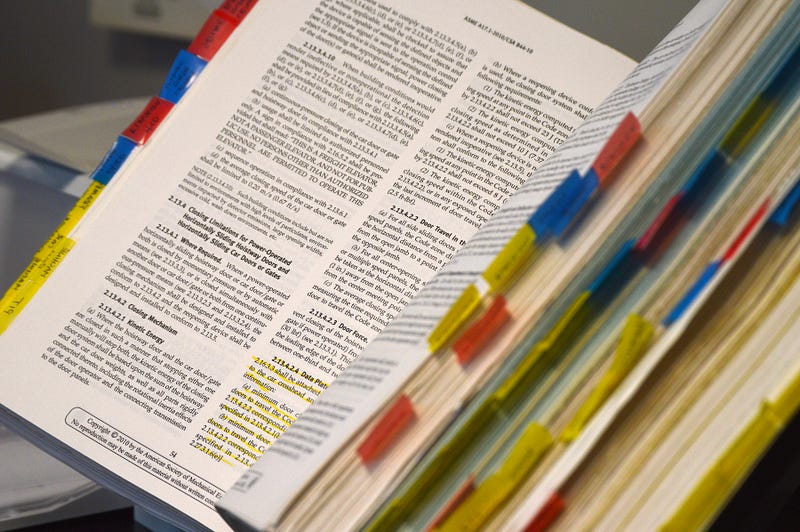The Dual Nature of Empathy: A Closer Look at Its Complexities
Written on
Understanding the Complexity of Empathy
This article delves into the intricacies of empathy, but before diving into the core discussion, it's essential to address some research-related nuances.

Photo by Russ Ward on Unsplash
Research can often be perplexing, particularly for those unfamiliar with the various decisions made prior to and during studies, which can lead to conflicting outcomes. However, this doesn't have to be the case. As long as you visit this blog, clarity can be achieved.
When encountering opposing results in research—where two studies yield contradictory conclusions or where a single study's findings appear inconsistent—what should we do?
- Panic.
- Seek to understand.
While I find the first option amusing, I typically choose the second path. To comprehend these discrepancies, we must consider several factors: Was the study design flawed? Were there logical oversights? Who participated in the study? Who authored it? And crucially, what constructs were examined, and how were they evaluated?
The last point is of utmost importance. Without a clear understanding of the constructs involved, one might as well be reading an entirely foreign language. A construct is essentially a concept, particularly a psychological one. In this context, empathy serves as a prime example—it's a multi-dimensional construct that researchers and the public alike recognize as encompassing more than a singular definition.
Once we establish the construct, the next step is determining how it was operationalized—that is, how it was measured. Empathy can manifest as the extent to which we share another's feelings, the ability to adopt someone else's perspective, or even as a form of compassion. It can be experienced in the moment, expressed through specific actions, or regarded as an inherent trait. Each interpretation can significantly alter the study's design and the insights we hope to derive from it.

Photo by NONRESIDENT on Unsplash
The research I will discuss here embodies all these considerations, leading to some fascinatingly conflicting results. One key finding reveals that:
- Momentary or situational empathy (the act of empathizing) correlates positively with well-being.
- Trait or average empathy (overall empathetic disposition) has a negative correlation with well-being.
What does this mean? Essentially, empathy can be both beneficial and detrimental. Is this a valid conclusion? Absolutely. Will it initially confuse some? Probably. Will those lacking a scientific background misinterpret these findings, amplifying the confusion? Very likely.
Nonetheless, we possess the tools to navigate this complexity, and hopefully, future studies will further clarify or challenge these conclusions. Here are my thoughts on this finding:
Situational empathy is beneficial. Why? Because connecting with others feels rewarding. Whether we empathize by feeling their emotions, understanding their viewpoints, or extending compassion, it fosters connection. As social beings, we thrive on these interactions, potentially uplifting those in need or enhancing positive emotions. Engaging in empathy often leaves us feeling fulfilled.
However, on the flip side...
Trait empathy can be detrimental. Why? Because constant empathizing can become exhausting. One aspect of empathy is the potential for personal distress, which can accompany empathetic experiences. The more we empathize, the more personal distress we might encounter. While there are ways to empathize without feeling distressed, overexertion of any skill can lead to burnout. Therefore, individuals who are generally more empathetic may also experience higher levels of personal distress. In individual instances, the positive feelings associated with empathy might overshadow this distress, but over time, it can accumulate, leading to feelings of resentment and a reluctance to engage deeply with others.
So, what’s the takeaway? Although these findings might seem logical, I rarely see such reasoning applied when contradictory results emerge. Consider this scenario: If you read an article claiming "Empathy is good!" followed by another proclaiming "Empathy is bad!" what would your reaction be? Unfortunately, many might conclude that scientists and psychologists are inconsistent. One week it's this, the next it's that. Why should we have faith in their expertise?
Pause for a moment. Reflect. Investigate. Cultivate curiosity. Read deeper. While it’s true that science and scientists are not infallible and occasionally produce misleading results, if you've paused to consider and arrived at that conclusion, then so be it. In time, the truth will reveal itself.
Yet, this truth is likely to be nuanced and not as clear-cut as we might wish. Despite their apparent contradictions, we can still apply both findings to our lives.
Stay tuned for more insights on empathy throughout this month.
Until next time,
-Alex
Chapter 1: The Good and Bad of Empathy
The first video titled "Is Empathy a Good or Bad Thing?" explores the dual facets of empathy, discussing how it can both enhance and complicate interpersonal relationships.
Chapter 2: A Critical Perspective on Empathy
The second video, "Why Empathy Is Not the Best Way to Care" features Paul Bloom on Big Think, presenting a critical examination of empathy and its implications for emotional well-being.